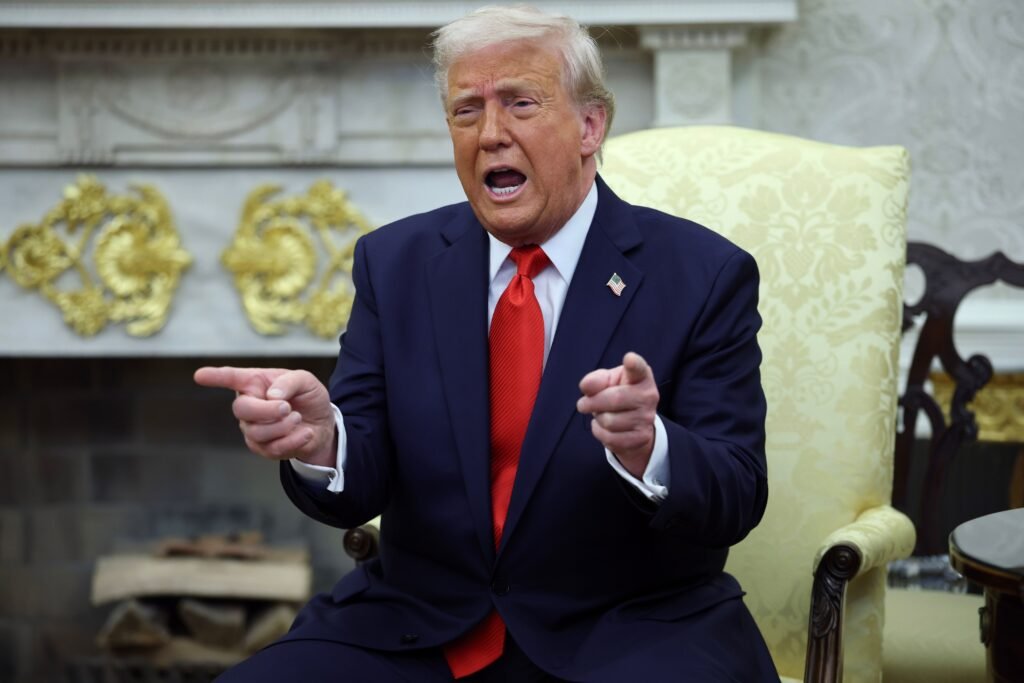It was just a matter of time. As the strategy has long dominated as a go-to company proxy for Bitcoin exposure, challengers were inevitable, but few people expected to run a social media company with a red hat. A recent announcement from Trump Media & Technology Group has transformed it into a Bitcoin Tray Jury company overnight, if unconventional, serious, Bitcoin Tray Jury company, with the announcement that it owns around $2 billion in Bitcoin.
But for investors looking for crypto exposure, the question isn’t just how much Bitcoin the company holds. It’s about what else comes with the package.
One corner has Strategy (formerly MicroStrategy). Bitcoin standardists, which were helmed by Michael Saylor, have effectively transformed sleepy enterprise software companies into digital gold vaults for the past four years. Saylor will become the evangelist of Bitcoin’s most well-known companies, turning his strategy into a digital gold safe and doubles his Bitcoin sermon.
In the other corner, he runs the Truth Social Platform and is participating in Enter on Trump Media (DJT), which has a revenue stream that could make a mistake with $4.1 million in 2023 compared to $498 million in 2023. However, the market capitalization was over $6 billion. This is a rating that has been almost entirely supported by brand loyalty, media spectacles and current Bitcoin.
Let’s be clear: DJT wasn’t just buying Bitcoin. It bought a lot of it – enough to push it into the higher tier of corporate BTC holders. On paper, it makes it interesting. But this is not your typical balance sheet play. This is Bitcoin from the stock of memes, populist cars and the capital of the culture war. And for investors looking for crypto exposure, it’s unpleasant and increasingly inevitable – question: What happens when your Bitcoin proxy has a political identity?
Strategic Bitcoin play has always been marketed as a hedge against the decline of rational (religious) inflation and torts, although bold. Its founder didn’t dabble in politics (outside of the fun at Altcoins). It’s not an ideology, it’s all-in Bitcoin.
In contrast, Trump’s media is ideology number one. Its brand, ratings, and customer base are inseparable from Donald Trump’s political identity. This is not a decision by the Ministry of Finance over wholesale pivots, as Bitcoin currently constitutes the overwhelming majority of the company’s assets. But in reality, it works like a cultural signal. This is a declaration of anti-establishment, aligned with the values of the pros, animating the most loyal followers.
That’s not necessarily a bad strategy. That could be great. The marriage between Trumpism and Bitcoin is not as strange as it looks. Both deny concentrated authority. Both thrive with rebellion. Both are revolutionary or rebellious, and always controversial, depending on your perspective.
However, for investors who just want to be exposed to crypto in their portfolios, the emergence of politically branded Bitcoin stocks poses a new kind of risk. What happens when Bitcoin becomes a tribe? What happens when each side of the political aisle has its own Bitcoin company, its own Bitcoin ETF, and its own financial media ecosystem?
In this new paradigm, exposure to Bitcoin could become a cultural affiliation, not just financial choices. Imagine a left-leaning climate technology company launching “Green Bitcoin Holdings, Inc.” Pushing eco-friendly mining. Or create “Freedom Ledger Corp.” Bitcoin as a tool for tax resistance and personal sovereignty. Bitcoin could be the equivalent of cable news, such as red coins, blue coins, and lasting rage.
This is far from Bitcoin’s original promise as a neutral, decentralized alternative. That should have been unreliable. Borderless. Capture immunity. But when its biggest corporate champion begins to act like a political action committee, it threatens to drag it into the very system designed to exceed Bitcoin.
So, where does it leave investors?
If you’re looking for a relatively clean Bitcoin proxy, the strategy still offers the clearest path. That volatility is authentic, but it is the volatility of a conviction. Meanwhile, Trump’s media is betting on narrative, loyalty and viral. It could be outperformed in the short term. It may trigger an entirely new class of politically pervasive crypto stocks. But that’s not about Bitcoin anymore. Who owns the Bitcoin story?
The final irony? I don’t care about Bitcoin itself. I don’t care who the CEO is. I don’t care who your president is. It continues to produce one block every ten minutes, one indifferent to spins, slogans, or Senate hearings (until 21 million people reach – at that point did the BTC Treasury’s biggest political tribe win?).
But investors are cautious. And as Bitcoin enters this new phase of cultural colonization, it would be wise to all ask: are we buying coins or campaigns?



